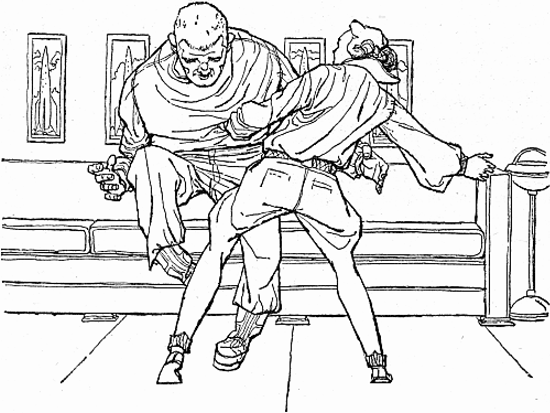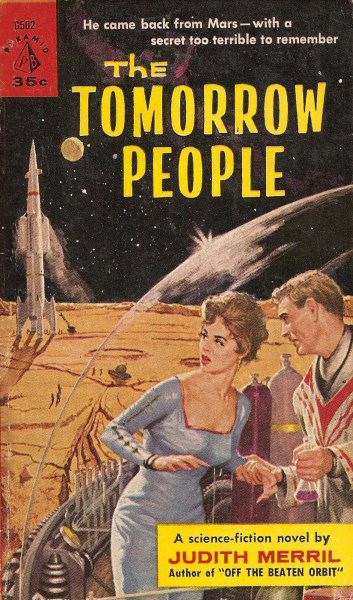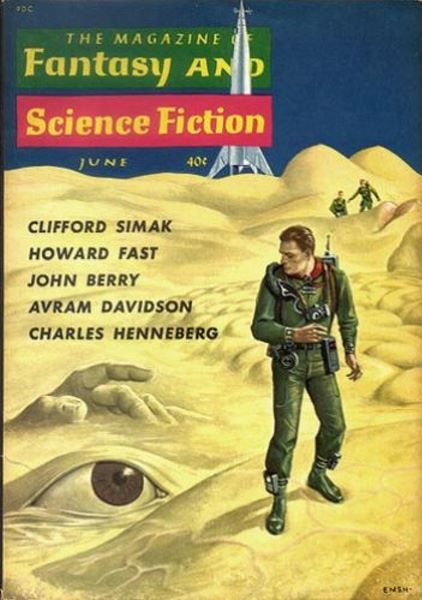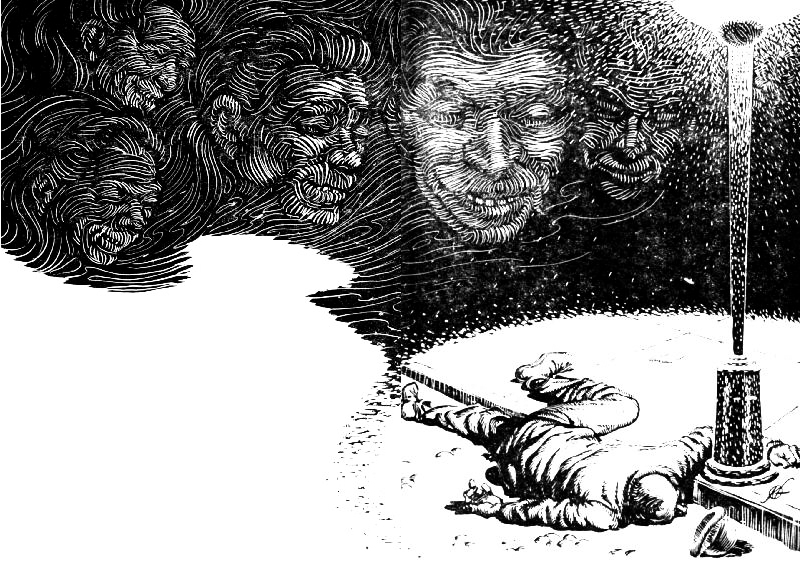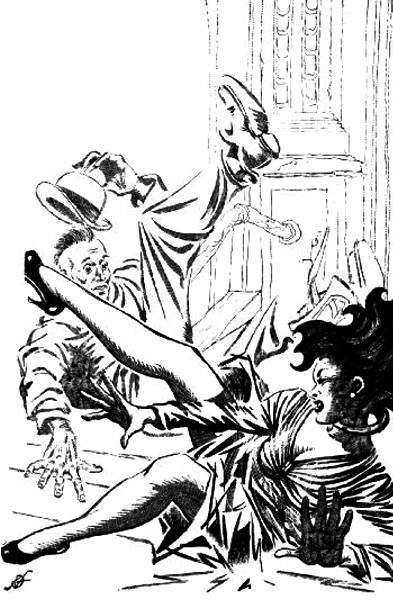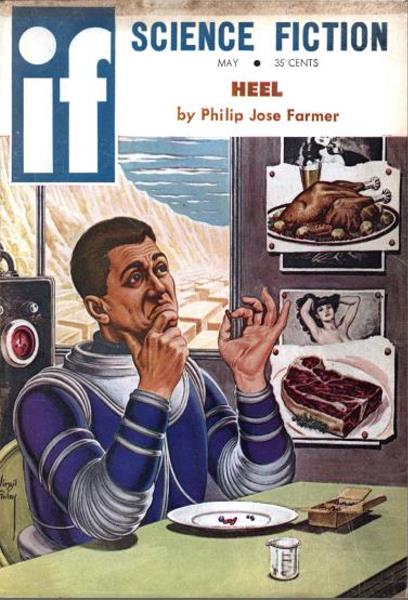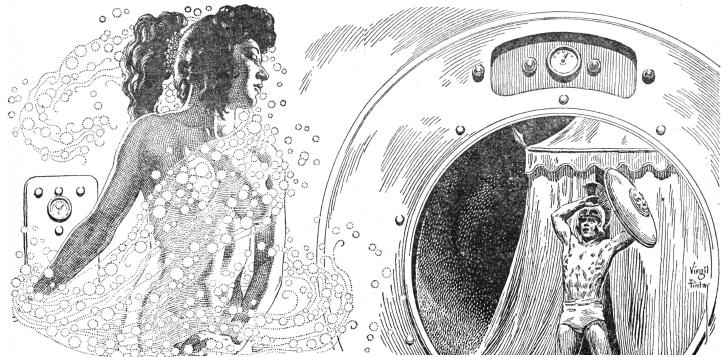
I was recently told that my reviews are too negative, and that I should focus on telling the world about the good stuff; for that hopeful fan, I present my assessment of the July 1960 Fantasy and Science Fiction. There's not a clunker in the bunch, and if none of the stories is a perfect gem, several are fine stones nevertheless.
My receipt of this month's issue was accompanied by no small measure of eagerness. The cover promised me two stories by female authors (Zenna Henderson and Miriam Allen deFord) as well as a novella by Wilson Tucker, who wrote the excellent The City in the Sea. Here's what I found inside:
Stephen Barr is no stranger to Fantasy and Science Fiction, having appeared in the book twice before. His lead short story, Oh I'll take the High Road is softer stuff than his usual science fictiony fare, but I enjoyed it. It features a poet scientist, who invents a thought-propelled space drive, and the eternal love he shares with a professor's daughter. Where he ends up, and how that love endures, makes for a pleasant (if not particularly remarkable) story.
I'd never head of Hollis Alpert before. His newness may explain the unusual nature of his premiere science fiction piece, a mock academic presentation called The Simian Problem, in which a professor discusses the relatively recent (fictional) phenomenon that involves women giving birth to degenerate ape children. The occurrence of such "monsters" is on the exponential increase, it seems, and an effective treatment remains elusive. The format meanders jarringly from first person expository to dialogue, but the sting in the story's tail is worth waiting for.
Moving on, we have the delightful Theodore Cogswell with The Burning, a portrayal of a dystopic future from the point of view of a most unusual teen gangster. Those involved in a certain ubiquitous youth organization may get more out of it than I did.
Zenna Henderson is always good, of course. Her Things is the story of a first encounter between an alien aboriginal race, told from the point of view of its female spiritual leader, and humanity. The Terrans bring all manner of technological gifts, but are they worth the physical and philosophical price? Should one sacrifice one's very cultural identity for the chance to "progress" scientifically? Tough questions, and Henderson pulls no punches.
I wasn't quite sure how to react to A.H.Z.Carr's It is not my fault, though upon reflection (and the measure of a good story is how much it makes you reflect), I think it's quite good. In brief: when a down-on-his-luck fellow collapses and dies in broad daylight near a busy thoroughfare, a momentarily attentive God dispatches an angel to determine who was at fault for the miserable death and dispense punishment. Sometimes justice isn't so easy as all that.
Then we have Miriam Allen deFord's All in Good Time, another first person exposition story. In this case, the setting is a first year law classroom a century from now, but this is largely incidental to the plot, which involves a cross-time bigamist. It's cute, and the presentation is more expertly handled than in the above-described Alpert story. I particularly appreciated that, in the future, female lawyers seem to be as common as male ones.
Ever wonder what to give the fellow who's had everything? What is Heaven to someone who enjoyed life to its fullest? Gordy Dickson asks those questions in his excellent The Last Dream. Of course, for many, just being close to the Almighty is reward enough, but most like to think of Heaven (if it exist) providing physical benefits, too. I bet the doughnuts are fantastic, for instance. And non-fattening.
Dr. Asimov has a good, timely article on Pluto and what lies beyond this month. It was one of my motivations for writing my own piece on the subject. He spends a good bit of space on the interesting Titius-Bode Law that seems to govern orbital spacing in our system, at least out to Uranus. I'm still not convinced that the "Law" isn't a statistical fluke–I look forward to being able to resolve systems outside ours so we can have a data set larger than one.
Fair Trade, by Avram Davidson, reads like a Clifford Simak piece. A pair of aliens make a forced landing in a backwoods town and party the natives before being rescued by another alien-crewed ship. Before departing, they swap their super-knives for a local manufactured good. Its identity is not disclosed until the end. One of the few non-somber pieces from the author.
Finally, we have Wilson Tucker's To the Tombaugh Station, a very good, novella-sized mystery involving a man, an asteroid miner by trade, suspected of murder, a tough woman bounty hunter sent to investigate him, and the long long trip across the solar system they spend together. Wilson Tucker has a penchant for writing strong female characters, and he does an excellent job here. The whodunnit aspect is nicely done, too.
I note that there is a Planet X beyond Pluto in this story, Tombaugh Station having been established solely for the purpose of investigating it. Tucker, at least in the instant tale, subscribes to the popular theory that Pluto was once a moon of Neptune.
Tallying up the numbers, we have a strong 3.5-star issue, well worth your time and 40 cents. See you soon with something Amazing!



